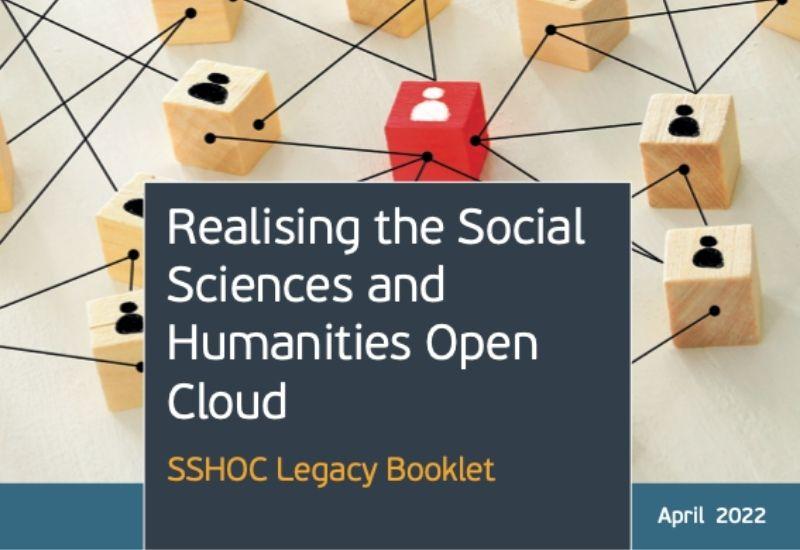
- Social Sciences & Humanities Open Cloud
SSHOC Legacy booklet
The social sciences and humanities (SSH) encompasses researchers with roots in very diverse domains and methodological frameworks, from heritage researchers documenting work with 3D digital objects to interdisciplinary social researchers seeking new modes to analyse existing sources, to name but a few. In the digital age, new insights and ground-breaking research increasingly relies on powerful, tailored tools and environments for research within and across disciplines.
This is where the Social Sciences and Humanities Open Cloud project comes into play by driving collaboration between various research infrastructures RIs and communities across apparently disparate domains. SSHOC has demonstrated that with smart interoperability guidelines and matching thematic service provision with the requirements and standards of the wider SSH domain. From this sea change, a cluster serving a larger use base with tools, services and workflows meeting the needs of multidisciplinary research agendas is born. Such a cluster is a key precondition for the emergence of a landscape that enables and supports collaboration across disciplinary boundaries, where each research infrastructure in SSHOC is making the commitment towards a more FAIR ecosystem for research with a high level of interoperability with the European Open Science Cloud.
Researchers from all over Europe and beyond can now easily compare multiple catalogues of data as key to broadening their research, enabling and enhancing a multidisciplinary approach beyond their specific field. From art (IPERION-HS) to history (CESSDA & CLARIN), from literature (CLARIN & DARIAH) to social science and economics (ESS and SHARE), this rich and user-friendly SSH data hub, created by SSHOC, marks a fundamental first step in building the integrated European Open Science Cloud (EOSC). As such, it serves researcher’s needs, unites communities and helps them tackle global challenges, while contributing to excellent research and open science within Europe and beyond.
This SSHOC Legacy booklet covers the main outcomes of this journey, marking a major step towards the exploitation of tools and services during the project’s funding lifecycle and from there the path towards sustainability. The first part showcases the work performed by SSHOC partners to achieve its open, fair multidisciplinary approach. The second part covers all the 33 Key Exploitable Results that underpin exploitation and sustainability, with each factsheet offering an overview of the results, how to use them and where to access them.

